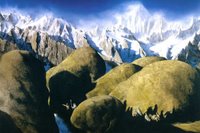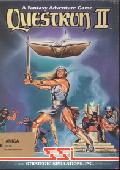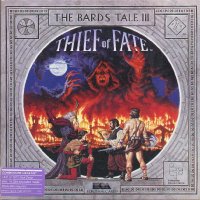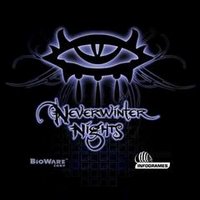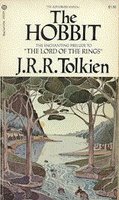
I read The Hobbit for the first time when I was 11 years old, in the beginning of my 6th grade y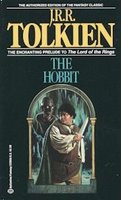 ear. Having played fantasy role-playing computer games for a few years, I was no stranger to the idea of hobbits, elves, dwarves, goblins, trolls, and other mythical races and creatures but I had never—and haven't since—read anything quite like The Hobbit. I was completely mystified. Having recently moved back to Orderville when my dad got out of the Army, life wasn't very much fun for me at that time. Moving into a small town where the class you move into has been together since kindergarten, at that age when kids aren't the nicest to each other left me in desperate need of a way to get away from real life, if only in my imagination. The story is written perfectly to capture the imagination of an 11-year-old whose imagination needs to be captured. Tolkien tells us about what Bilbo was doing a
ear. Having played fantasy role-playing computer games for a few years, I was no stranger to the idea of hobbits, elves, dwarves, goblins, trolls, and other mythical races and creatures but I had never—and haven't since—read anything quite like The Hobbit. I was completely mystified. Having recently moved back to Orderville when my dad got out of the Army, life wasn't very much fun for me at that time. Moving into a small town where the class you move into has been together since kindergarten, at that age when kids aren't the nicest to each other left me in desperate need of a way to get away from real life, if only in my imagination. The story is written perfectly to capture the imagination of an 11-year-old whose imagination needs to be captured. Tolkien tells us about what Bilbo was doing a nd feeling, but is somewhat general about most everything else, which is fitting since the story was originally one he wrote for his children. My imagination filled in the details with images that I can still clearly see. I live in Provo, at the foot of Squaw Peak and just south of Mt. Timpanogos on the western edge of the Wasatch and Uintah Mountains in Utah. Sometimes when it's stormy it appears that the top of Mt. Timpanogos just vanishes up into the clouds and it looks like the mountain goes up forever with no top. At those times a small par
nd feeling, but is somewhat general about most everything else, which is fitting since the story was originally one he wrote for his children. My imagination filled in the details with images that I can still clearly see. I live in Provo, at the foot of Squaw Peak and just south of Mt. Timpanogos on the western edge of the Wasatch and Uintah Mountains in Utah. Sometimes when it's stormy it appears that the top of Mt. Timpanogos just vanishes up into the clouds and it looks like the mountain goes up forever with no top. At those times a small par t of my mind is Bilbo, looking up at the Misty Mountains (now you all know that I really am weird). Whenever I go into wooded areas where the light doesn't quite all make it down to ground level, that same small part of me is Bilbo in Mirkwood Forest, trying to find the dwarves. Every time I read The Hobbit I get the same sense of wonder that I did 15 years ago, and I never get tired of reading it. Each time a part of my mind wanders down to the past when I was 11 years old and all I had to worry about was getting picked on at school and escaping from my cares with Bilbo and the dwarves.
t of my mind is Bilbo, looking up at the Misty Mountains (now you all know that I really am weird). Whenever I go into wooded areas where the light doesn't quite all make it down to ground level, that same small part of me is Bilbo in Mirkwood Forest, trying to find the dwarves. Every time I read The Hobbit I get the same sense of wonder that I did 15 years ago, and I never get tired of reading it. Each time a part of my mind wanders down to the past when I was 11 years old and all I had to worry about was getting picked on at school and escaping from my cares with Bilbo and the dwarves.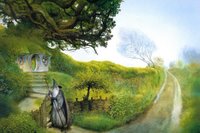
Not long after reading The Hobbit I read The Lord of the Rings for the first time. Even though I was young (maybe 12 or 13) I remember being struck by the depth of wisdom showed by some of the characters and seing a clear contrast between the "for children" style of The Hobbit and the depth of The Lord of the Rings. Since that time I have read all 4 of the books every year (except while on my mission) and sometimes twice in a year. I'm currently sitting in the Council of Elrond (for the 18th time) trying to decide with them what to do with the One Ring. And this time, like all the rest, it's almost like I'm there.
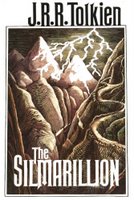 The Silmarillion followed a year or two later when my dad told me about it. I think I was 14 or 15 at the time, and at first it seemed really boring. The Silmarillion is Tolkien's account of the creation of Middle Earth and the events that shaped the world long before we ever hear of hobbits. Many of the legends and songs in The Hobbit and The Lord of the Rings make reference to the events told in The Silmarillion, when the elves and the first men fought against Morgoth trying to regain the Silmarils he stole. I did notice, however, that there were some amazing similarities between the beginning chapters detailing the creation of Middle Earth, and the creation story found in the Bible. At that point in my life, Tolkien's treatment of the necessity of evil made more sense to me than much that I had "learned" in church. So every other year or so I read The Silmarillion again and remember just how much work Tolkien did to create a world that was true to his beliefs and to document the entire world of it, and not just the 4 books from it that happen to be the most popular.
The Silmarillion followed a year or two later when my dad told me about it. I think I was 14 or 15 at the time, and at first it seemed really boring. The Silmarillion is Tolkien's account of the creation of Middle Earth and the events that shaped the world long before we ever hear of hobbits. Many of the legends and songs in The Hobbit and The Lord of the Rings make reference to the events told in The Silmarillion, when the elves and the first men fought against Morgoth trying to regain the Silmarils he stole. I did notice, however, that there were some amazing similarities between the beginning chapters detailing the creation of Middle Earth, and the creation story found in the Bible. At that point in my life, Tolkien's treatment of the necessity of evil made more sense to me than much that I had "learned" in church. So every other year or so I read The Silmarillion again and remember just how much work Tolkien did to create a world that was true to his beliefs and to document the entire world of it, and not just the 4 books from it that happen to be the most popular.
These books represent a special place for me. By reading them and becoming so immersed in them when I was young they, like the scriptures, shaped my perspective on life. When I read them I am taken back to a simpler time. Back then, I went to school, shot guns, lifted weights, and read. I remember how I felt when I read them for the first time. Everyone has a "special place" that represents happiness or peace. Nicole's is Disneyland. Mine happens to be an entire world, populated by elves and dwarves, orcs and trolls, hobbits and from time to time a stranger just getting away from computers, cars, bills, and school.

